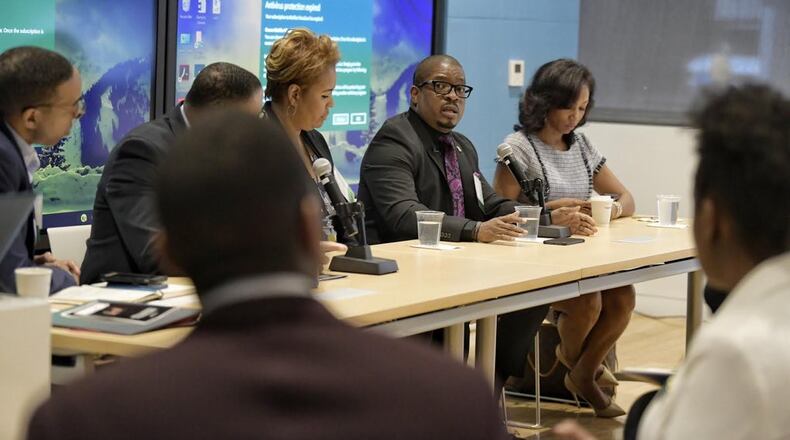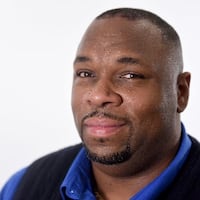Lee Whack, spokesman for the School District of Philadelphia, said that for school districts made largely of students of color, perception is reality.
That’s important to remember when working with journalists to tell stories from school districts that already have a negative public perception.
“There will always be bad things happening,” said Whack. “You’ve got to look for the good story at the middle-of-the-road school and not just the good stories about the principal, the football coach and the crossing guard at the school everybody knows to be a good school.”
That message matters for Atlanta, as just over 51 percent of residents in the metropolitan area identify as people of color, according to census data. Closer to the city itself, the number of nonwhite residents gets larger. In Atlanta, for example, more than 60 percent of residents are people of color. Metro Atlanta also includes the Clarkston area, designated as a refugee resettlement district, including people of more than 100 nationalities.
Whack knows news stories will not always present his district in a positive light. He said he finds balance by finding and pitching stories of resilience and perseverance from across the district.
“The benefit is you start to shift the narrative about a school district,” he said. “There’s often a narrative that the schools are bad. We know there are great things happening in our schools every day. So it’s about finding that student or that teacher or that principal and giving the public an understanding that there’s greatness happening in the ordinary neighborhood school.”
The panel got heated when Marco Clark, founder and chief executive officer of D.C.’s Richard Wright Public Charter School for Journalism and Media Arts, said,“We’ve got to hurt some feelings in order to tell the truth. Our kids are out of control, and violence is taking over. That’s the conversation we’ve got to have.”
Marla Dean, director for Bright Beginnings, an early childhood and family learning center serving homeless children in Washington, D.C., disagreed. “I refuse to believe the narrative that our children are out of control,” she said. “We have not figured out how to support our children.”
Whack got his undergraduate degree from Atlanta’s Morehouse College. There, he mentored students from an Atlanta Public Schools elementary school for two years. “I realized there were serious challenges in public education there,” he said.
The narrative driven by news stories sometimes does not help, he said. It is why he pushes so much for stories about bright spots in his district.
“I look at it as going on offense,” he said. “If they see it in the paper of record, they’re going to think of the positive things. That’s going to … change the perception and change the amount of investment in our schools.”
About the Author
Keep Reading
The Latest
Featured



